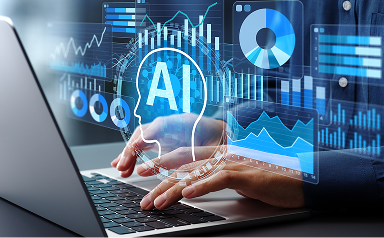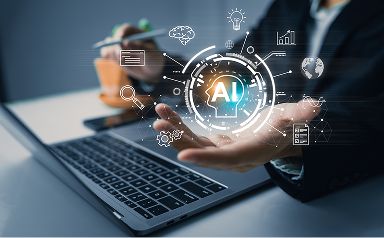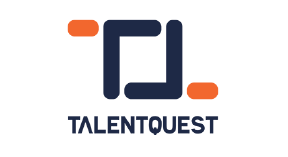Artificial Intelligence (AI) Solutions
Unlock quick wins with AI- effortlessly integrated into your existing systems. Our expertise ensures the right approach without disruption.
How To Harness AI for Maximum Business Impact
Start small. Scale smart. Transform boldly.
We help our clients adopt AI through a clear, proven maturity curve, beginning with quick wins that unlock efficiency and evolving toward breakthrough innovation.
Stages of AI Adoption That Drive Real Results
Reduce Operational Friction
Free up human time, reduce costs, and simplify work.

Reduced manual effort

Faster turnaround times

Cost savings

Robotic Process Automation (RPA)

Intelligent Document Processing

Chatbots
Predict Outcomes
Leverage data to anticipate outcomes and optimize decision-making.

Higher forecast accuracy

Increased retention & LTV

Better conversion rates

Predictive Analytics

Recommendation Engines

Customer Segmentation
Reinvent Customer Value
Unlock new revenue, build smarter products, and reshape your market.

New revenue streams

Competitive differentiation

Scalable innovation

Generative AI for Product Innovation

Autonomous Systems

AI-Powered Pricing Models

Reduce Operational Friction
Free up human time, reduce costs, and simplify work.

Reduced manual effort

Faster turnaround times

Cost savings

Robotic Process Automation (RPA)

Intelligent Document Processing

Chatbots

Predict Outcomes
Leverage data to anticipate outcomes and optimize decision-making.

Higher forecast accuracy

Increased retention & LTV

Better conversion rates

Predictive Analytics

Recommendation Engines

Customer Segmentation

Reinvent Customer Value
Unlock new revenue, build smarter products, and reshape your market.

New revenue streams

Competitive differentiation

Scalable innovation

Generative AI for Product Innovation

Autonomous Systems

AI-Powered Pricing Models
3 Steps To Kickstart Your AI Journey

Assess Your AI Readiness
We perform a thorough analysis of your business ecosystem to pinpoint your current AI maturity and uncover untapped opportunities.

Spot Opportunities
We identify the most promising areas where AI can drive measurable value and rapid ROI in your operations.

Integrate AI
We strategically implement AI solutions in key areas to align with your goals, streamline processes, and amplify efficiency.
3 Simple Steps To Kickstart Your AI Journey

1. Assess Your AI Readiness
We perform a thorough analysis of your business ecosystem to pinpoint your current AI maturity and uncover untapped opportunities.

2. Spot High-Impact Opportunities
We identify the most promising areas where AI can drive measurable value and rapid ROI in your operations.

3. Embed AI
We strategically implement AI solutions in key areas to align with your goals, streamline processes, and amplify efficiency.
Find Out Where You Stand in the AI Journey.
AI Innovations: From Applied AI to Gen AI and Chatbots
Artificial Intelligence (AI) solutions bring out several fascinating innovations reshaping how we interact with technology. The three key areas are Applied AI, Gen AI, and Agentic AI. Whether delivering personalized suggestions, mimicking human intelligence, or improving customer interactions, our AI development services cover it all.

Applied AI
We help you build AI solutions that automate tasks, optimize operations, and support smarter decisions - using your existing data and business logic.

Gen AI
Leverage Gen AI to create personalized content, automate code generation, and accelerate innovation. We help you build custom Gen AI applications tailored to your needs.

Agentic AI
Go beyond automation - we can help you build intelligent agents that can plan, reason, and act independently to handle complex workflows and business tasks.
Real-World Success: Case Studies & Use Case Stories

A light-touch AI solution helped a franchise legal player considerably reduce their average case settlement time from years to days.
Challenge:
A franchise legal player took years to process claims, costing the employer a hefty amount of lost time and resources. This delay hindered efficiency and strained client relations.
Solution:
- AI augmentation of claims administration
- Analyzing complex data and contexts through automation
- Character recognition and computer vision techniques
Results:
- Settle cases in less time and amount
- 50% decrease in average total claim costs

A private jet charter eliminated empty legs and mastered flawless flight planning using AI-powered custom software.
Challenge:
A top player in private jet chartering needed to step up their game. They wanted to use tech to stay ahead and improve their trip planning. But they faced a big challenge: managing crews and sales effectively.
Solution:
- Implemented AI for precise scheduling and crew management
- Streamlined data integration for smoother operations
- Utilized AI to monitor emails efficiently
- Introduced AI-based pricing models
Results:
- Achieved remarkable operational efficiency
- Efficient scheduling and operations.
- Substantial reduction in ‘Empty Legs’
- Enhanced flight planning capabilities

A university boosted learning and student engagement with AI-Chatbots using an Automated Intelligence ecosystem.
Challenge:
In North Carolina, a university sought innovative approaches to elevate teaching, research, and student engagement.
Solution:
- AI Chatbot with a teaching assistant
- Web application integrated with IBM Watson
- Multiple chatbots to manage student queries
Results:
- Enhanced student engagement
- Resolve student queries instantly
- Round-the-clock support for students

An intelligent system triumphs over human errors, providing precise project cost estimates within tight deadlines.
Challenge:
Managing complex project data, spotting duplicates, and clarifying ambiguities while handling RFPs in various formats is daunting. Manual processes are slow and error-prone without automation, hindering swift and accurate project cost estimation.
Solution:
- Intelligent system leveraging AI and ML
- Integrating NLP libraries
- Automation of mundane tasks
- Automated report generation
Results:
- Precision improvement by 30 – 40%
- Accurate figures backed by historical data
- Generate estimates for documents of varied formats
- Faster and accurate project estimation

MUSA, an AI-powered virtual assistant, transforms HR productivity exponentially.
Challenge:
Adapting swiftly to remote work, Fingent’s HR faced a dilemma: balancing timely employee assistance with increased responsibilities amid the pandemic’s virtual communication challenges.
Solution:
- MUSA, an HR chatbot using Artificial Intelligence
- Integrated into the Fngent employee hub
- Automation of Frequently Asked Questions (FAQs)
Results:
- Streamlines handling common employee queries
- Improves HR response time significantly
- Substantially reduces HR workload
- Offers instant and accurate responses

AI Can Power Your Business Landscape
25%
Enhanced Efficiency
Increase in employee productivity is experienced by businesses that automate processes with AI.
80%
Personallized Experiences
Customers are more likely to do business with a company that offers personalized experiences.
84%
Competitive Edge
Enterprises believe AI gives them a competitive advantage.
30%
Data Driven Insights
More likely to have their operational decisions based on data by using AI for data analysis.
60%
Cost Effectiveness
Reduction in business costs by using AI-driven automation for operations.
77%
Scalability
Companies consider scalability to be a key factor in adopting AI solutions.
Fingent’s AI Development Services

Natural Language Processing (NLP)
Enhancing language understanding for improved communication and interaction.
Intelligent Automation
Automating repetitive tasks and workflows with AI.
Customized AI Solutions
Tailored AI applications to meet specific business needs.
Chatbots and Smart AI Assistants
Creating intelligent virtual assistants for customer support and engagement.
Predictive Analytics
Leveraging AI to forecast trends and make data-driven predictions.
Implement AI To Your Existing Systems Without Any Disruptions
At Fingent, we understand that disrupting existing systems is not an option. Our expertise lies in integrating AI into your existing business processes, ensuring a smooth transition to a tech-enhanced future. Your journey to AI starts here.

Step 1
We conduct a thorough analysis of your business ecosystem.

Step 2
We identify specific areas within your operations with the highest potential for AI integration.
Step 3
We embed intelligence into those identified areas that align with your business goals and maximize efficiency.


Customized AI Solutions
Tailor AI solutions to align with your unique business needs and goals.

Minimal Disruptions
Our experts ensure a smooth integration process, minimizing any impact on your ongoing operations.

Continuous Support
We provide ongoing support and monitoring to ensure the sustained success of AI integration.
We Make AI Work in Every Industry
Aviation

Retail

Financial Services

Legal

Education

Logistics

Healthcare

Insurance

Manufacturing
Trusted By Global Clients









































"What we find most impressive about Fingent is their knowledge and how sensitive they are to our needs." -
Director of Technology, Real Estate Company
5.0
Quality
5.0
Schedule
5.0
Cost
5.0
Willing to Refer
5.0



 US
US Insurance
Insurance









































